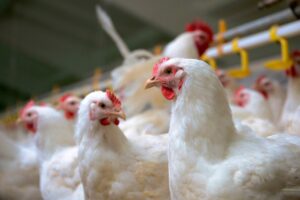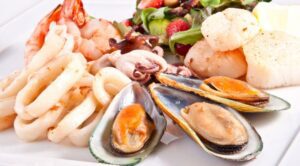
During the period of Russian military aggression, Ukraine should allow the import and sale of fuel of the Euro-4 ecological standard, director of the A-95 consulting group Serhiy Kuyun said.
“It is necessary to temporarily allow the use of fuel of Euro-4 standards. The equipment of the Armed Forces of Ukraine will not notice this at all. Tanks, ZILs, diesel locomotives and others will go easily – this equipment is not new for the most part,” he wrote on his Facebook page.
“Civilian transport will also survive. Strict European fuel requirements are mainly for environmental purposes. Now there are much more serious threats to our life and health than the exhaust in traffic jams from refugees’ cars,” Kuyun said.
According to him, there are interesting price offers for Euro-4 on the foreign market, which will increase the filling of the Ukrainian market with fuel.

The UK will gradually stop importing Russian oil by the end of 2022 in response to Vladimir Putin’s illegal invasion of Ukraine, the British government said in a statement on Tuesday.
“The UK is working closely with the US, the EU and other partners to end our dependence on Russian hydrocarbons in response to Russian aggression in Ukraine, recognising the different circumstances and transition timelines. This significant move will increase the growing pressure on Russia’s economy by choking off a valuable source of income,” the document says.
According to it, the refusal of imports will not be immediate: the UK, which covers 8% of its oil demand from Russia, will have more than enough time to adjust supply chains, support industry and consumers. The government will work with companies through a specially created Taskforce on Oil to help them use this period to find alternative sources.
London notes that oil accounts for 44% of Russian exports, which provides 17% of federal budget revenues.
According to the British government, in a competitive global market for oil and petroleum products, demand can be met by alternative suppliers. The UK has various reliable suppliers outside of Russia, including the Netherlands, Saudi Arabia and the United States.
“In another economic blow to the Putin regime following their illegal invasion of Ukraine, the UK will move away from dependence on Russian oil throughout this year, building on our severe package of international economic sanctions,” UK Prime Minister Boris Johnson said.
According to London, Russian oil is already being ostracised by the market, with nearly 70% of Russian oil currently struggling to find a buyer, and in a competitive global market demand will quickly be met by alternative suppliers. On March 1, Russian ships were banned from UK ports and authorities were granted new powers to detain Russian vessels.
The statement notes that the UK is not dependent on Russian natural gas, making up less than 4% of our supply. Ministers are also exploring options to reduce this further.
The Prime Minister confirmed that the government will set out an energy strategy to set out the UK’s long term plans for greater energy security, including both renewable and domestic oil and gas supplies.
As reported earlier on Tuesday, the United States announced a complete renunciation of Russian oil imports.
IMPORT, RUSSIAN OIL, STOP, UK

U.S. President Joe Biden announced on Tuesday a ban on the import of Russian oil into the United States. In a press statement in Washington on Tuesday, he stated: “Today I am announcing new sanctions. We ban all oil imports. The measure has strong bipartisan support. We made this decision in close consultation with allies in Europe.”
At the same time, Biden noted that “our European allies may not be in a position to join us.”
The U.S. President called on Congress to pass a $12 billion aid package for Ukraine. He noted that the United States has already provided Ukraine with a $1 billion security assistance package and is coordinating actions in this area with European allies.
Speaking about the impact of sanctions on Russia, Biden noted that “the Russian economy has cracked.” “The Central Bank of Russia is trying to support the ruble, but cannot do it now. We are restricting Russians’ access to technology, which will weaken its military for many years to come.” “If we don’t confront Putin now, the situation will get even worse,” he said.
BAN, BIDEN, IMPORT, RUSSIAN OIL, US

On February 18, Ukraine imposed a ban on the import of poultry meat and by-products from the United States after an outbreak of avian flu on a turkey farm in Indiana on February 10.
As reported on the website of the Public Health Center (PHC), the ban applies to the import of hatching eggs, birds, products from it (with the exception of products that have been processed by a method that guarantees the destruction of the causative agent of the specified disease), feed, as well as by-products of the poultry industry.
According to the State Customs Service, in 2021 Ukraine imported $122,000 worth of poultry meat and offal from the United States, becoming Ukraine’s 15th trading partner in terms of imports, while Poland ($40.6 million) and Hungary became the largest ($10.3 million).
Avian influenza is an acute infectious viral disease of birds, characterized by damage to the digestive and respiratory organs and high mortality. Influenza affects birds of any age, and the mortality rate for the disease reaches 80-100%.

Last year, Ukraine increased the import of fish, crustaceans and shellfish by 28.6% compared to 2020, to $874 million, according to the website of the Institute for Agrarian Economics National Research Center on Monday.
According to the institute, Norway retained its status as the largest supplier of these products with a share of 35.2% ($307.6 million) of total imports. Norway has been holding a leading position in the import of fish and seafood to Ukraine for 15 years.
Other major suppliers of these products were Iceland with a market share of 13.2% ($113.6 million), the United States – 7.7% ($67.3), Canada – 5.6% ($49 million), Great Britain – 4.7% ($41.1 million) and Spain – 4.4% ($38.4 million). These six countries combined accounted for 71% of fish and seafood imports in 2021.
“Fish and seafood are traditionally in the top three main types of agricultural food imported to Ukraine. In 2021, the share of products of this group in the structure of foreign supplies of agricultural raw materials to Ukraine turned out to be the largest and amounted to about 11%,” expert Bohdan Dukhnitsky said.
The organization clarified that Ukraine buys mainly frozen, as well as fresh and chilled fish, fish fillets and crustaceans.